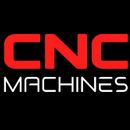Efficient Coolant and Metal Chip Separation in CNC Machining: Filtration Methods and Best Practices

🧊 Efficient Coolant and Metal Chip Separation in CNC Machining: Filtration Methods and Best Practices
In CNC machining, the accumulation of metal chips and contaminants in coolant can degrade performance, reduce tool life, and increase maintenance costs. Implementing effective filtration systems is essential to maintain coolant purity and ensure optimal machine operation.
🔄 Importance of Coolant Filtration
Coolant serves multiple purposes: it cools the cutting area, lubricates tools, and flushes away metal debris. However, without proper filtration, contaminants like metal chips and fines can:
- Clog coolant lines and nozzles
- Accelerate tool wear
- Reduce surface finish quality
- Shorten coolant lifespan
Effective filtration systems remove these contaminants, preserving coolant quality and enhancing overall machining efficiency.
🧰 Filtration Methods for Coolant and Chip Separation
1. Magnetic Separators
Ideal for removing ferrous particles, magnetic separators use powerful magnets to extract metal chips from the coolant stream. This method is efficient and requires minimal maintenance.
2. Gravity Bed Filters
Utilizing gravity, these filters allow heavier particles to settle at the bottom, while cleaner coolant flows over the top. They are simple to operate and cost-effective for removing larger debris.
3. Bag and Cartridge Filters
These filters trap contaminants within a replaceable bag or cartridge. They are suitable for fine particle removal and can be customized based on filtration requirements.
4. Hydrocyclone Separators
Employing centrifugal force, hydrocyclones separate particles based on density differences. They are effective for continuous removal of both ferrous and non-ferrous particles.
5. Chip Conveyors
Designed to transport larger metal chips away from the machining area, chip conveyors prevent accumulation and facilitate easier disposal or recycling of metal waste.
🧪 Materials Involved in Filtration
Coolant Types: Water-soluble oils, synthetic fluids, and semi-synthetic fluids, each with specific filtration needs.
Metal Chips: Ferrous (e.g., steel, cast iron) and non-ferrous (e.g., aluminum, brass) materials, varying in size and shape.
Understanding the properties of both coolant and metal chips is crucial for selecting the appropriate filtration method.
🛠️ Best Practices for Coolant Filtration
- Regular Maintenance: Inspect and replace filters as needed to maintain efficiency.
- Monitor Coolant Quality: Regularly test coolant for contamination levels and adjust filtration processes accordingly.
- Proper Disposal: Dispose of collected metal chips and used filters in compliance with environmental regulations.
- System Compatibility: Ensure filtration systems are compatible with existing machinery and coolant types.
🔮 Future Trends in Coolant Filtration
Advancements in filtration technology are leading to more automated and efficient systems. Innovations include:
- Smart Filtration Systems: Integration of sensors and IoT for real-time monitoring and predictive maintenance.
- Enhanced Filter Media: Development of materials that offer higher filtration efficiency and longer service life.
- Eco-Friendly Solutions: Focus on sustainable practices, including recyclable filter materials and reduced coolant waste.
Implementing effective coolant and metal chip filtration systems is vital for maintaining CNC machine performance, extending tool life, and ensuring high-quality production. By understanding the various filtration methods and adhering to best practices, manufacturers can optimize their machining processes and reduce operational costs.


